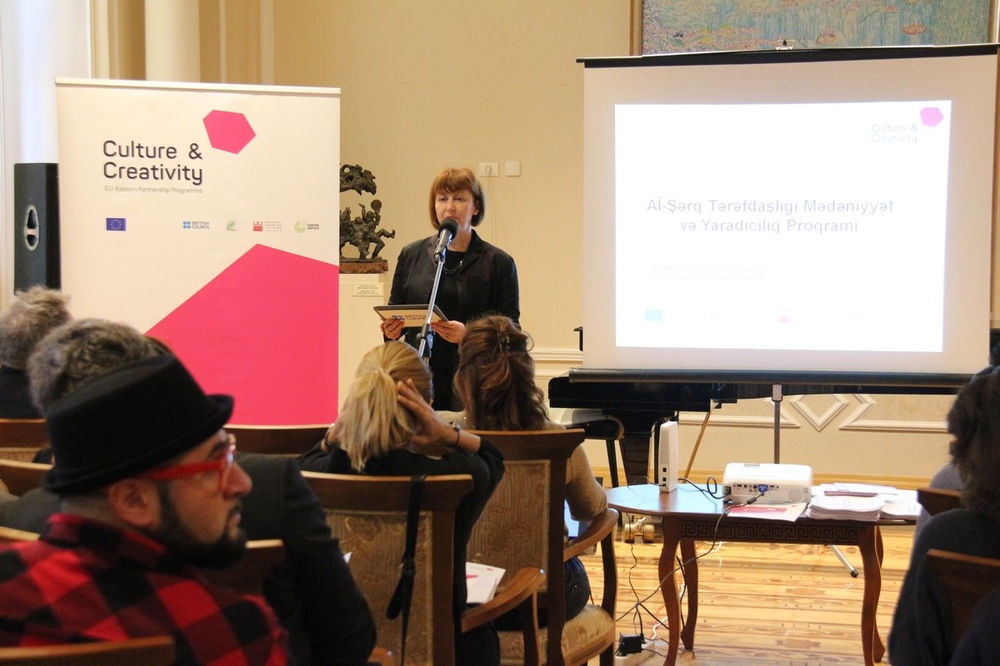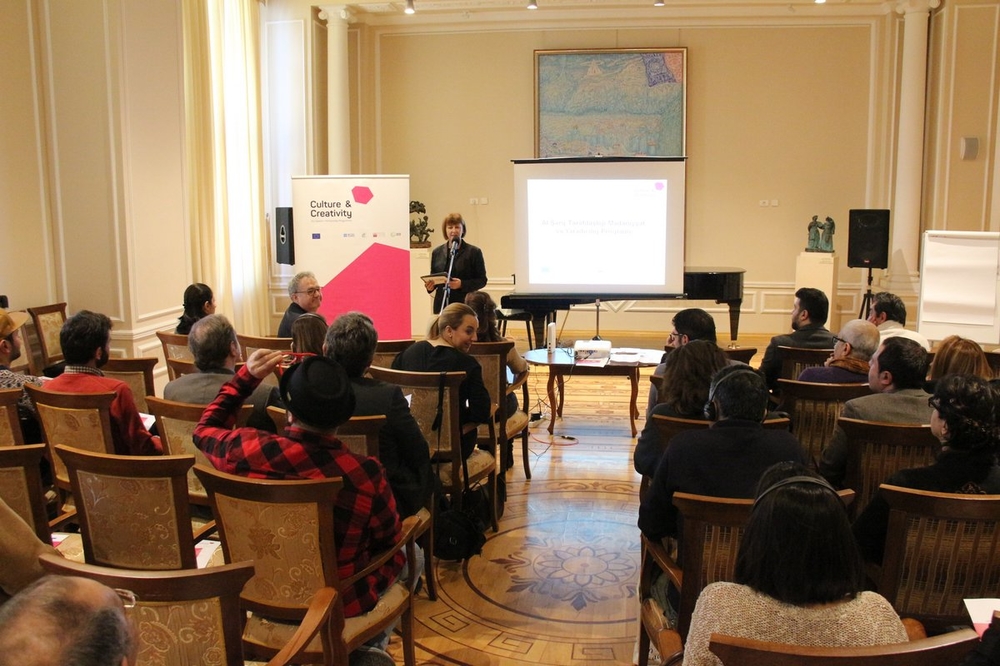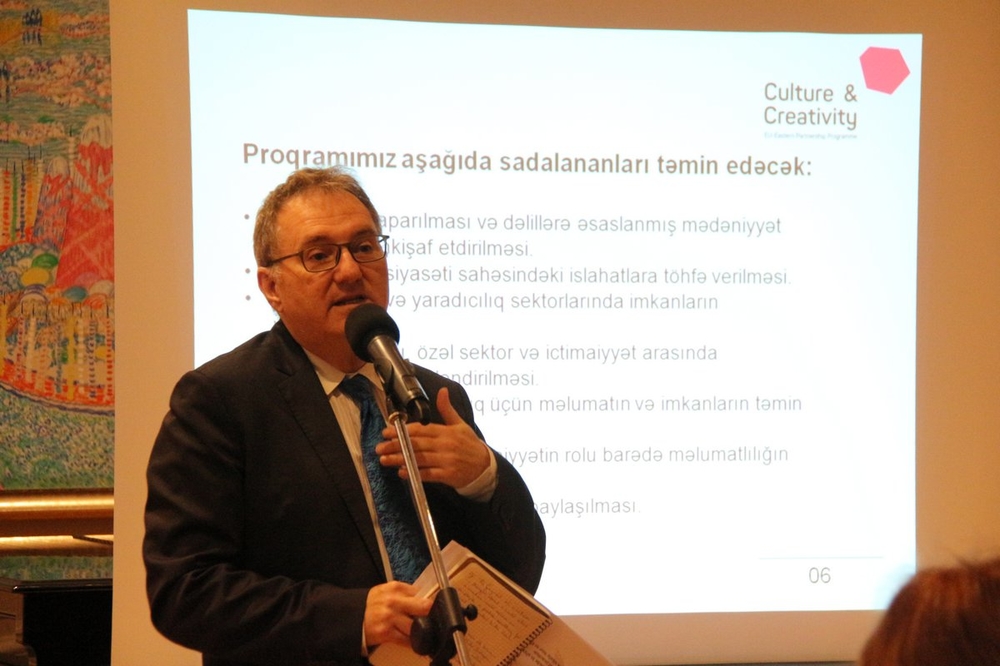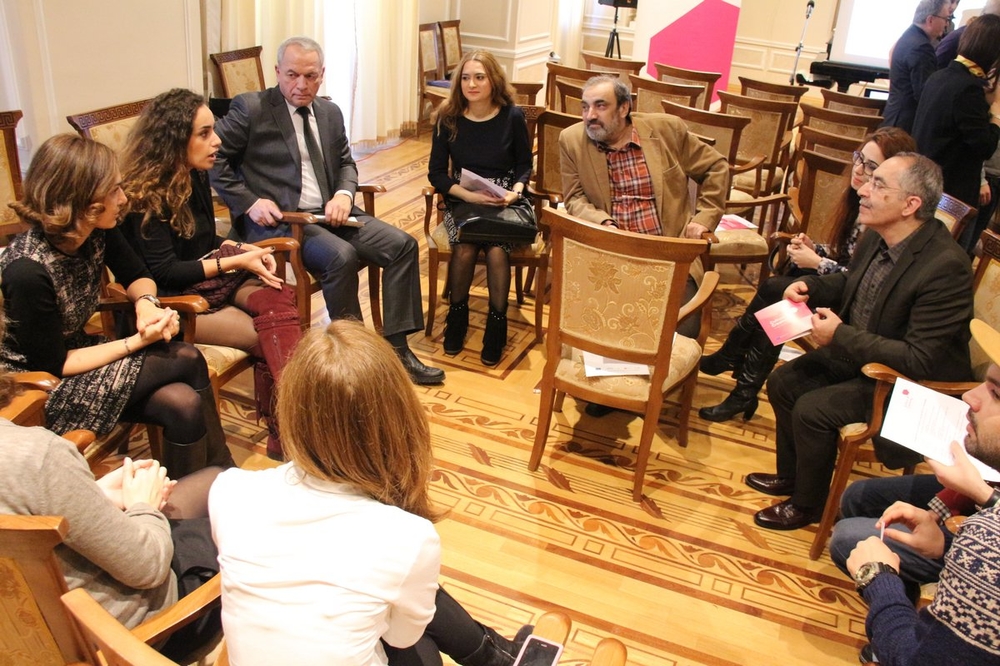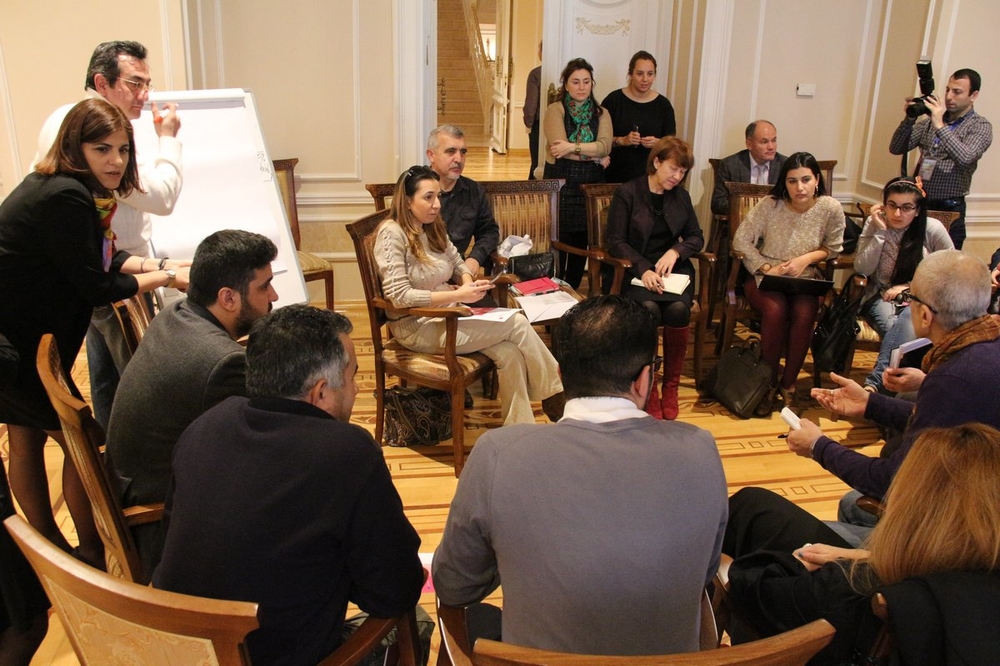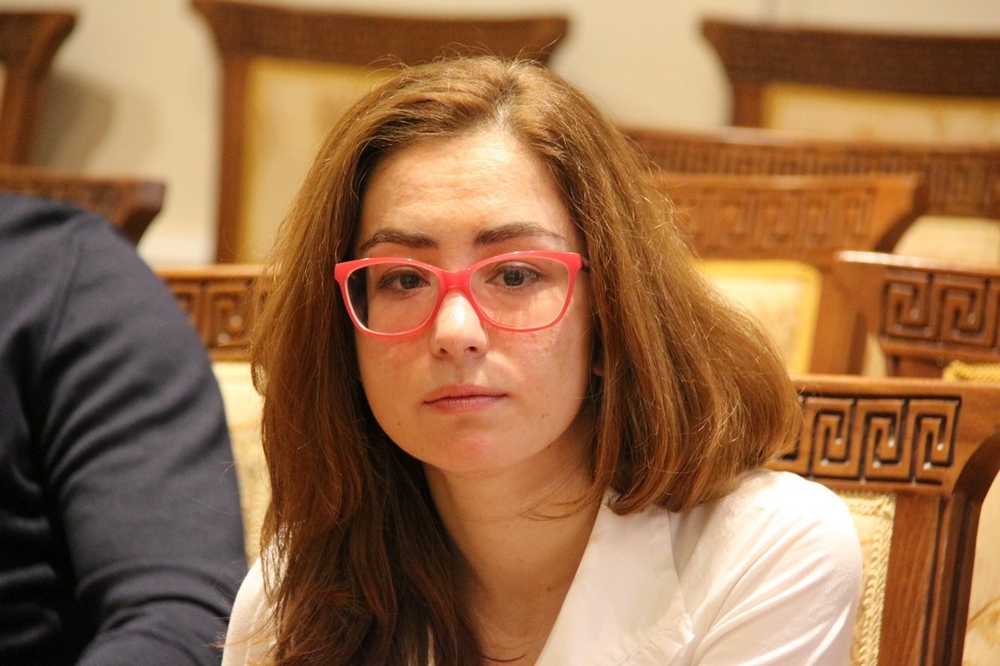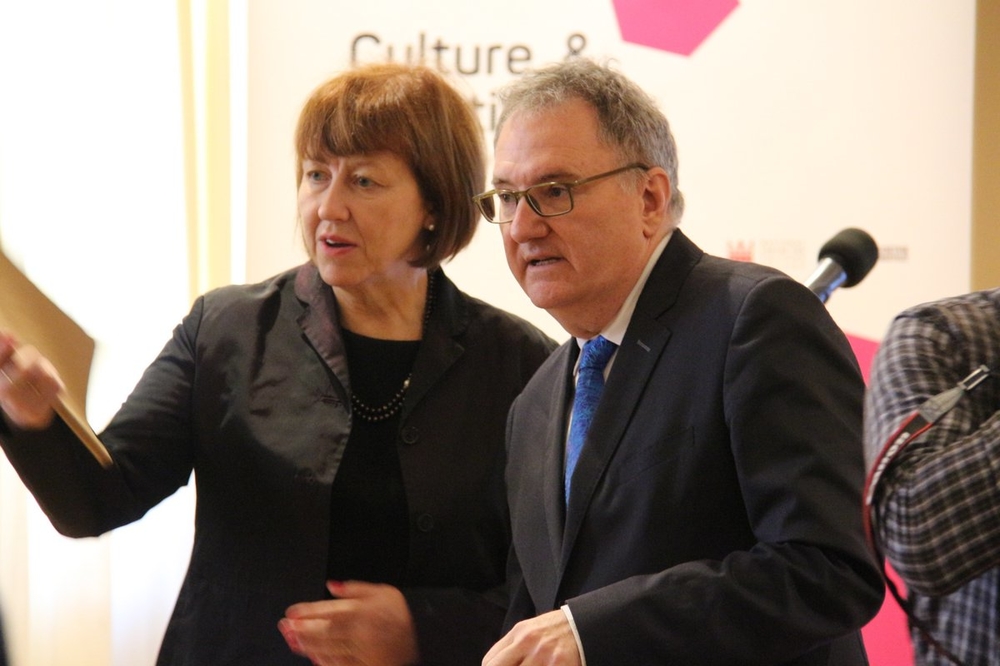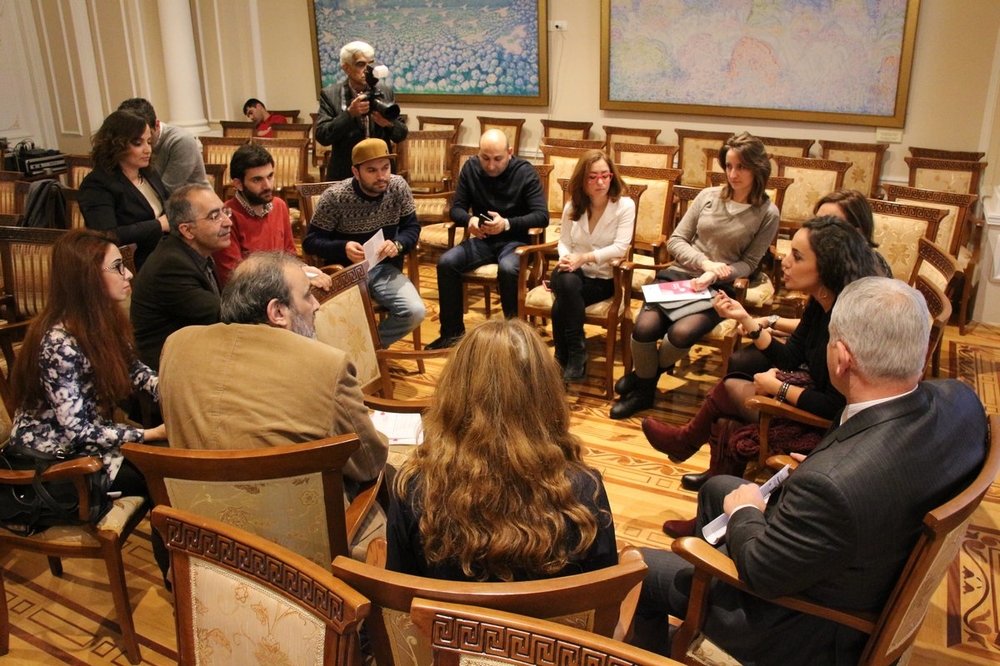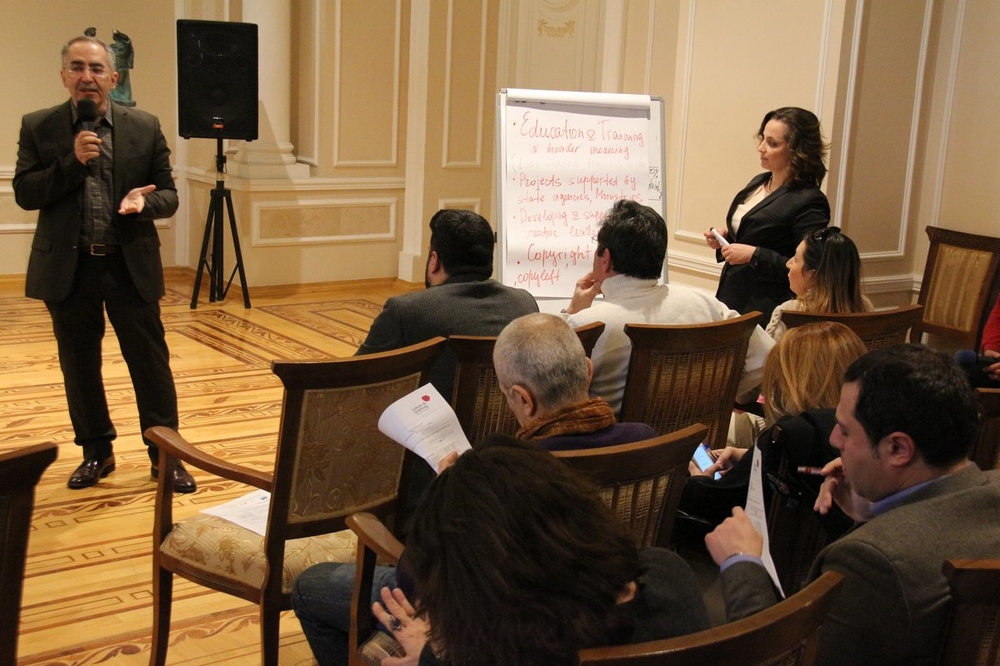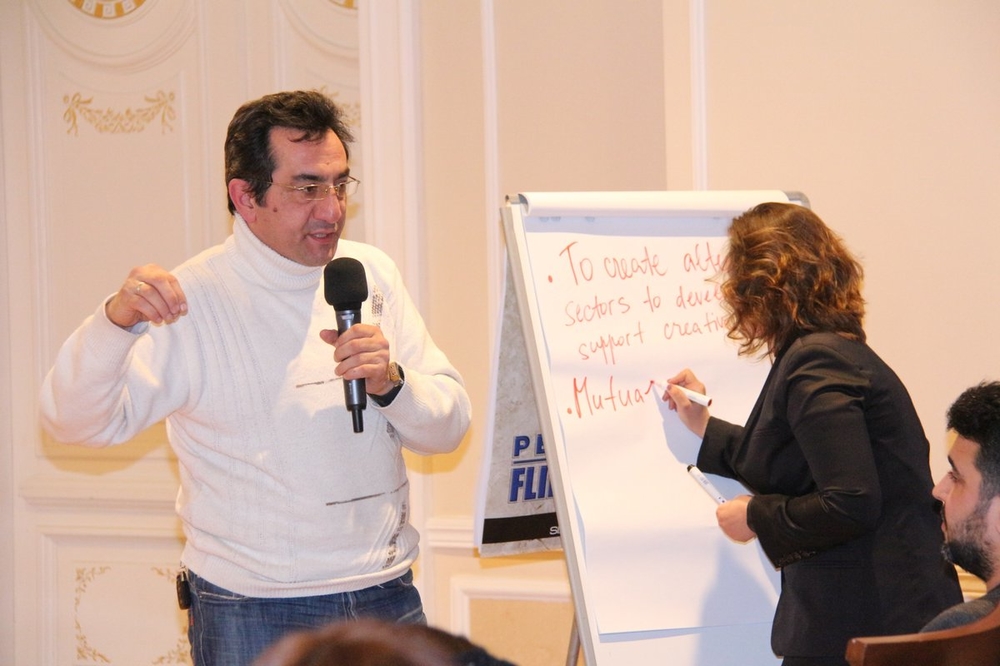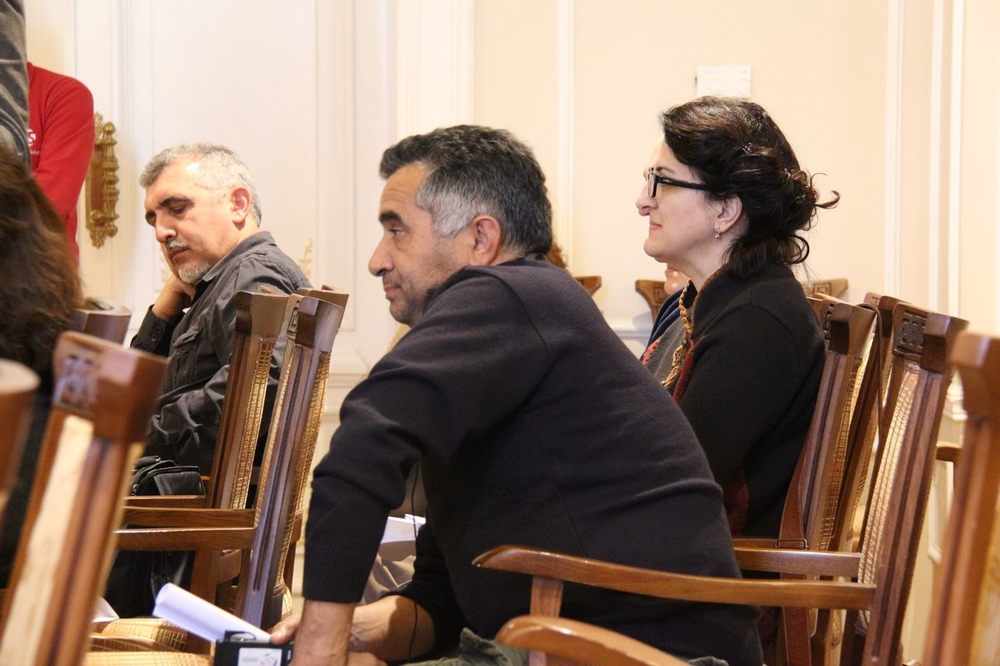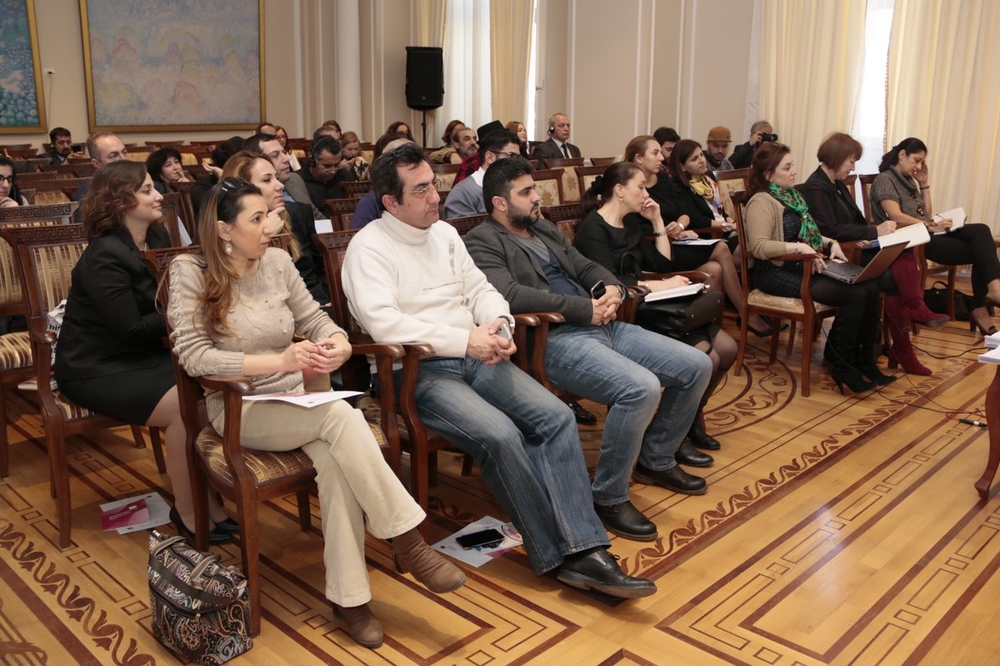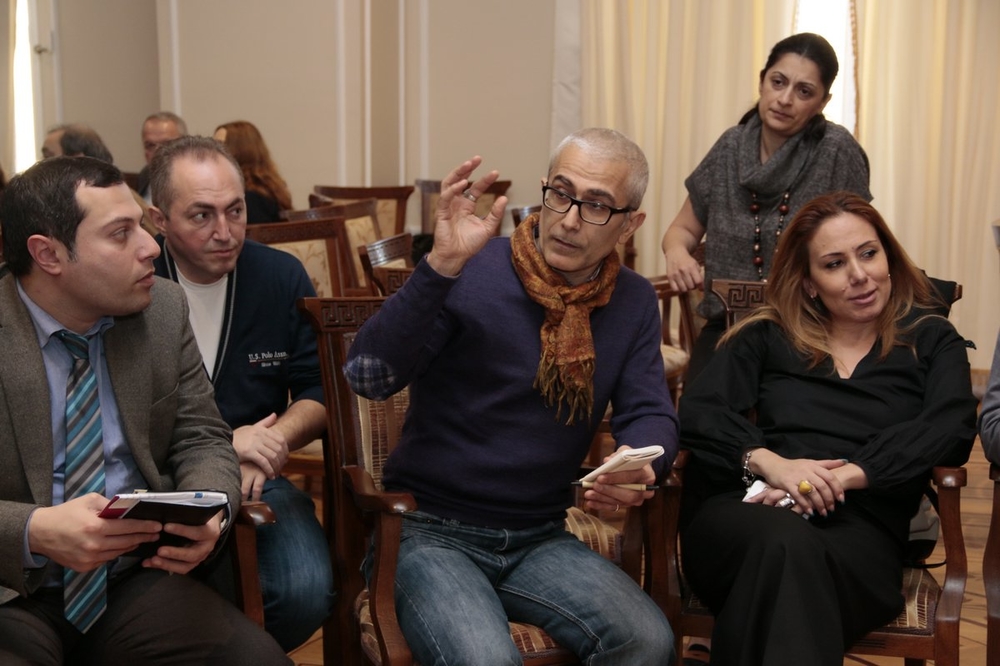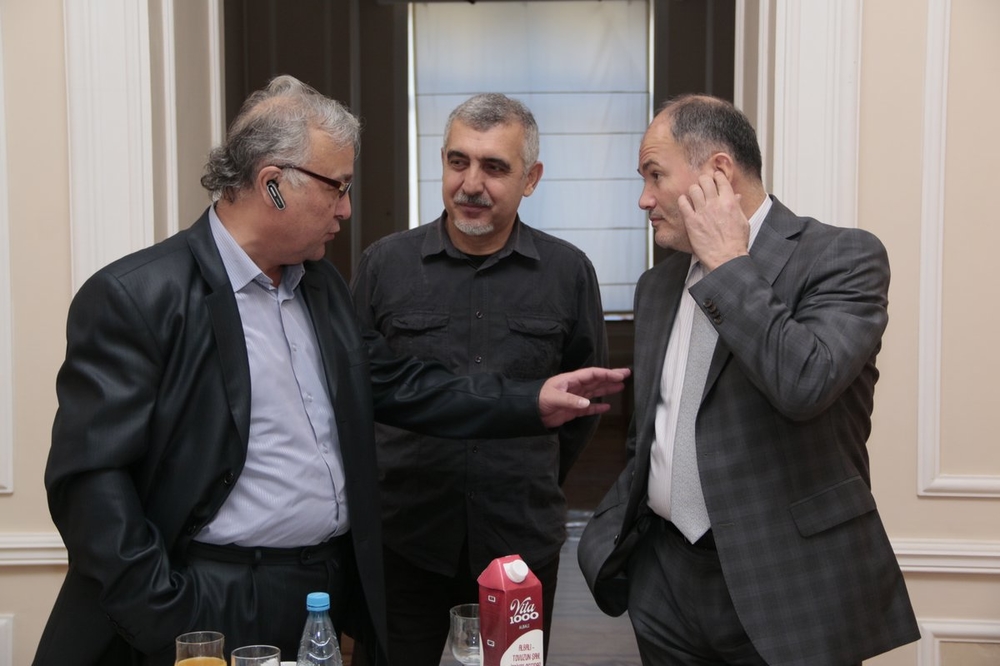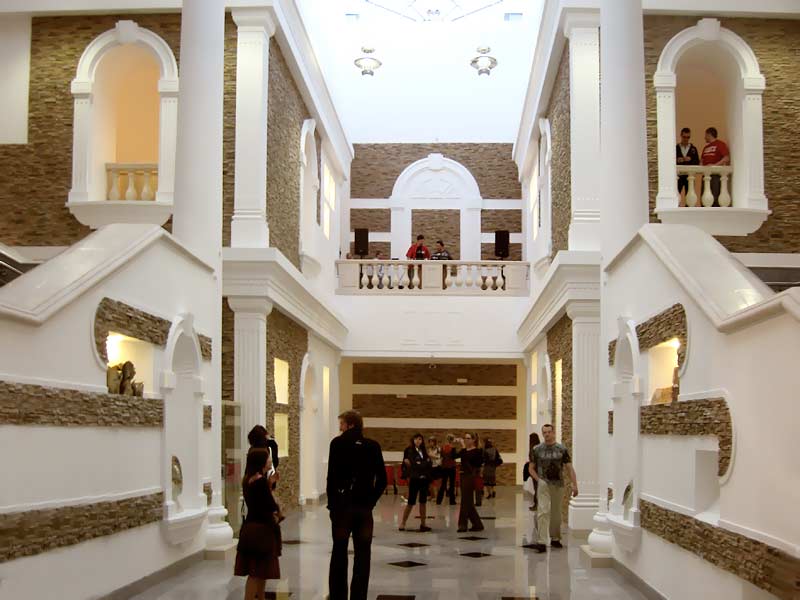
Issues and priorities for development of cultural and creative industries in Azerbaijan
The session was opened by the head of British Council Azerbaijan, Elizabeth White, who thanked the museum management for their hospitality and stressed the importance of cultural initiatives in the rapprochement and cooperation between countries in the region. The program is implemented with the participation of British Council in collaboration with Soros-Moldova, GOETHE Institute and the National Center of Culture of Poland, and is funded by the European Union.
“Culture as a driving force for changes” was the motto of the presentation made by one of the program coordinators, Tim Williams. In his speech he drew the attention of the audience to the fact that today digital technology plays an increasingly important role in raising awareness of the wide public on the culture and creativity, their impact and opportunities. This happens not only through print or digital media, but also trough such mass scale industries as fashion, architecture, design, and even computer games.
Making reference to the investigations of the reputable institutions, such as Oxford University, Tim Williams expressed some concern in respect of the automation of a number of human activities. We live in an Information Age, the era of rapid development of information technologies. What will happen to the cultural industry after, say, 20-30 years?! As wide-sweeping automation enables robots to take human’s workplaces, the question about future of cultural initiatives and creative ideas becomes vital. Will they still be in demand?! According to the study, creativity and culture are particularly one of the few areas of human activity which is secured from automation risk. The fruit of creative ideas will always be in demand was the conclusion of researchers.
While telling about the opportunities of the program, Tim Williams gave detailed information on the Enlightenment Tour to Poland, which is open to all interested parties engaged in creative industry. “This is a very good chance in terms of not only training and sharing experience, but also as further cooperation with Polish partners” - he said.
Then the program’s Communications Manager, Anastasia Nurzhinska touched the communication issues. In order to solve issues that cultural experts frequently face when working with media and ensure successful promotion of the cultural products, a number of meetings and sessions will be separately held with journalists covering cultural events in the country and involved in the creative industry.
During the second part of the session, which ran much more upbeat, the participants discussed their general vision of creative industries and the current cultural situation in Azerbaijan. Participants of debates made several points, which they believe should be considered not only by the event organizers but also by the governments where the program is implemented. In particular, they put forward the following ideas:
- Culture needs education, entrenchment of culture to people shall start from childhood. Failure to do so will result in an acute shortage of highly qualified personnel in some of the creative industries. For instance, there is a huge lack of professional sound producers or lighting experts in the film industry.
- Focused government policy aimed to support alternative sector and development of creative ideas and creative leaders is crucial.
- Discussions on gaps in copyrights legislation are very important. As per participants, the copyright issue is one of the hottest issues.
- There is a strong need to elaborate mechanisms of improvement of the legislative framework, which ultimately shall be aimed at the launching, development and support of cultural and creative projects.
- School for cultural and arts leaders shall be commenced. From this point of view, regular master classes, workshops, and seminars could fill the existing gap.
- Introduce market mechanisms based on mutually beneficial cooperation to the cultural and creative industry.
- Provide access to the grants supporting joint cultural and creative initiatives within Eastern Partnership framework.
- Creation of media space for enhancing the popularity of art and culture among people. Study industry best practices in other more developed countries, and adoption them in Azerbaijan.
- Implementation of the strategic plan that would reflect all recommendations in respect of ongoing cultural and creative projects.

